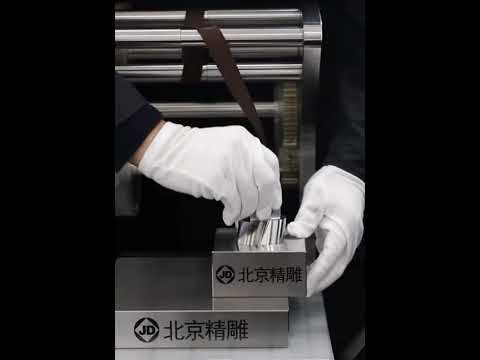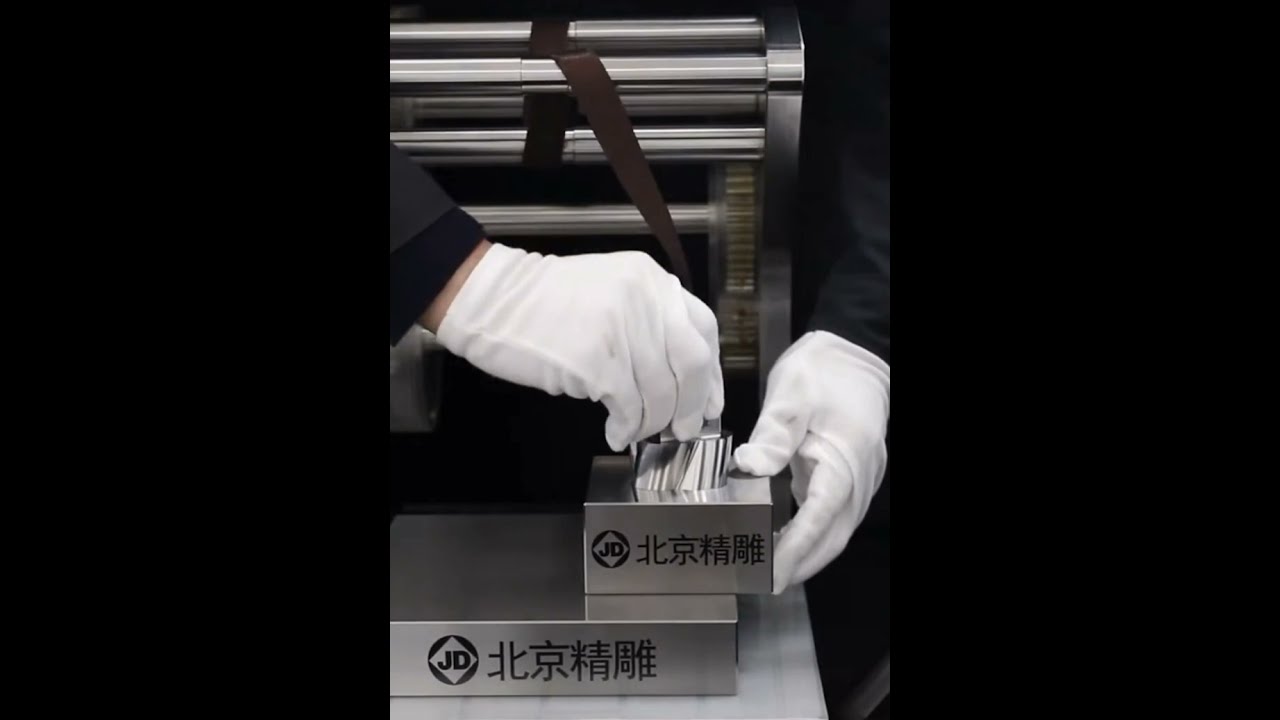Precision fabrication is a fascinating process that combines cutting-edge technology, meticulous attention to detail, and expert craftsmanship to create exceptional products. With an unwavering commitment to quality and precision, this innovative method revolutionizes the manufacturing industry. Each component undergoes a meticulous and meticulously controlled process, ensuring flawless results every time. From intricate designs to complex structures, precision fabrication delivers unparalleled accuracy, meeting the most demanding specifications with ease. With state-of-the-art machinery, this advanced technique allows for unprecedented intricacy and precision, pushing the boundaries of what is possible. Whether it's for aerospace, medical, automotive, or other industries, precision fabrication guarantees the highest standards of excellence. The attention to detail and unwavering commitment to perfection sets precision fabrication apart, making it a standout choice for those seeking top-quality products. The combination of cutting-edge technology and expert craftsmanship ensures that every piece produced is of the utmost quality, surpassing expectations. With precision fabrication, innovation and excellence come together to create products that are not only visually stunning but also functionally superior. Experience the revolutionary impact of precision fabrication and discover a world of infinite possibilities.

The Importance of Precision Fabrication in Manufacturing
Precision fabrication is a critical process in the manufacturing industry that involves creating highly accurate and intricate metal components or structures. This method utilizes advanced machinery, computer-aided design (CAD) software, and skilled technicians to produce parts with exceptional precision and quality. In this article, we will explore the importance of precision fabrication and its various applications in different industries.
1. Enhanced Product Quality
Precision fabrication plays a vital role in enhancing product quality. The accuracy and precision achieved through this process result in parts that fit together seamlessly, minimizing the risk of defects or malfunctions. The use of advanced machinery and CAD software allows manufacturers to create components with extremely tight tolerances, ensuring that each part meets the required specifications.
Furthermore, precision fabrication techniques enable the production of complex geometries and intricate designs that would be impossible to achieve using traditional manufacturing methods. This capability opens up new possibilities for creating innovative and cutting-edge products that meet the ever-evolving demands of consumers.
2. Cost and Time Efficiency
Precision fabrication offers significant cost and time savings compared to conventional manufacturing processes. By utilizing advanced machinery and automation, precision fabrication minimizes human errors and reduces the need for manual labor. This translates into faster production cycles and fewer defects, resulting in higher productivity and reduced costs.
Moreover, precision fabrication techniques enable manufacturers to optimize material usage, reducing waste and lowering production costs. The ability to create highly accurate and intricate parts also eliminates the need for extensive post-processing or assembly, further reducing production time and costs.
3. Versatility and Customization
Precision fabrication provides manufacturers with unparalleled versatility and customization options. The advanced machinery and CAD software used in this process allow for the production of highly complex parts with unique shapes, sizes, and features. This versatility makes precision fabrication suitable for a wide range of industries, including aerospace, automotive, electronics, and medical.
Additionally, precision fabrication enables customization to meet specific customer requirements. Manufacturers can easily modify designs, dimensions, or materials to create tailor-made components that precisely match their clients' needs. This ability to provide customized solutions enhances customer satisfaction and strengthens business relationships.
4. Consistency and Reliability
Precision fabrication ensures consistent and reliable production outcomes. The use of advanced machinery and standardized processes minimizes variations and deviations in part production. This consistency is crucial, especially in industries where precision and reliability are paramount, such as aerospace and medical.
Furthermore, precision fabrication techniques enable manufacturers to replicate parts with high accuracy, ensuring consistent quality across multiple production runs. This ability to maintain consistent quality and reliability is essential for industries that require interchangeable or identical components.
5. Advancements in Technology
Precision fabrication is continuously evolving with advancements in technology. As new technologies emerge, precision fabrication techniques become more sophisticated, allowing for even higher precision and efficiency. Manufacturers are continually investing in research and development to stay at the forefront of precision fabrication capabilities.
One such advancement is the integration of additive manufacturing, commonly known as 3D printing, with precision fabrication techniques. This combination allows for the creation of complex and lightweight structures with superior strength and performance. The integration of additive manufacturing expands the possibilities for precision fabrication and opens up new avenues for innovation in various industries.
Conclusion
Precision fabrication is a crucial process in the manufacturing industry, offering enhanced product quality, cost and time efficiency, versatility, customization, consistency, and reliability. This advanced technique allows manufacturers to produce highly accurate and intricate parts that meet the strictest specifications. As technology continues to advance, precision fabrication will play an even more significant role in driving innovation and meeting the evolving demands of consumers.
China's Unparalleled Precision Steel Fabrication: The CNC Revolution
Precision Fabrication
Precision Fabrication
Precision fabrication is a cutting-edge manufacturing technique that involves the creation of intricate and complex parts and components with utmost accuracy and precision. This process utilizes advanced machinery and technology to ensure the highest level of quality and perfection in the final product. Below is a table highlighting some fascinating aspects of precision fabrication:
| Aspect | Description |
|---|---|
| Computer-Aided Design (CAD) | Precision fabrication heavily relies on CAD software to create detailed digital models of the desired component. These models are essential for generating precise instructions for the fabrication process. |
| Computer Numerical Control (CNC) Machining | CNC machines are utilized in precision fabrication to carry out various manufacturing processes. These machines are highly automated and capable of executing intricate tasks with exceptional accuracy, ensuring consistent quality throughout production. |
| Laser Cutting | Laser cutting is a key technique used in precision fabrication. It enables the accurate and precise cutting of various materials, including metals, plastics, and composites. Laser cutting allows for intricate designs and complex shapes to be achieved with minimal material waste. |
| 3D Printing | Another innovative technology employed in precision fabrication is 3D printing. This technique allows for the creation of three-dimensional objects layer by layer, based on digital models. 3D printing offers exceptional design flexibility and enables the production of highly complex geometries that would be challenging to achieve through traditional manufacturing methods. |
| Quality Control | Precision fabrication places significant emphasis on quality control measures. Advanced metrology equipment and techniques are employed to ensure that the fabricated components meet the specified tolerances and requirements. This meticulous attention to quality guarantees the reliability and functionality of the final product. |
Precision fabrication revolutionizes the manufacturing industry by enabling the production of intricate and precise parts that were once deemed unachievable. The utilization of advanced technologies and rigorous quality control ensures that the end products meet the highest standards of excellence.

